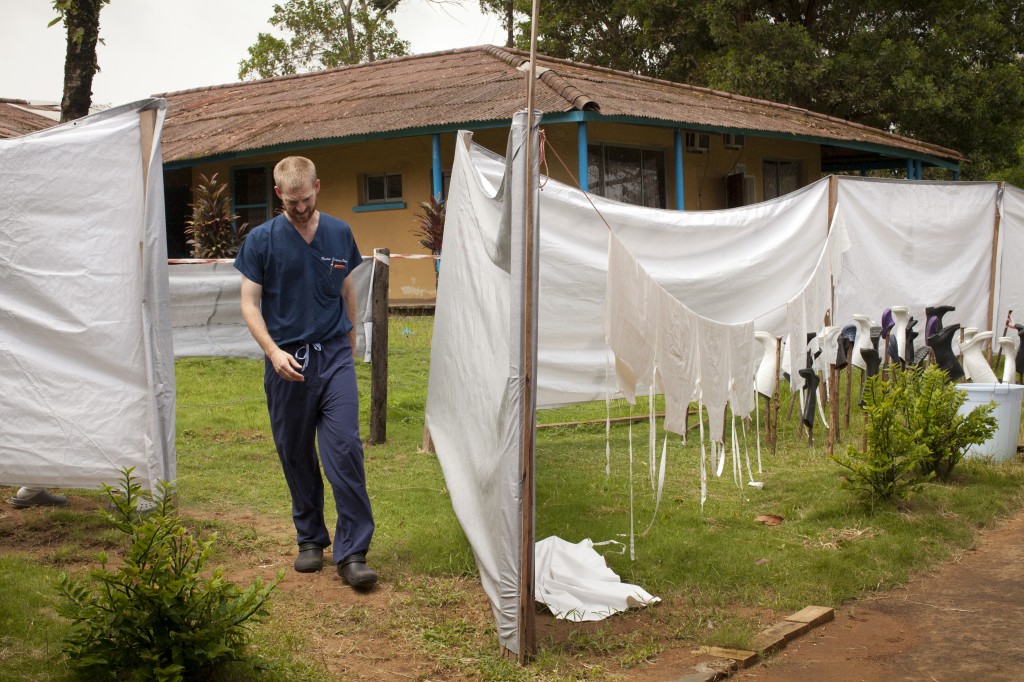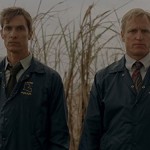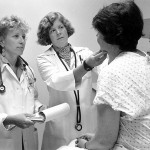Editors’ Note: This article is part of the Patheos Public Square on Heroes of 2014. Read other perspectives here.
Of the ten people treated for Ebola in the United States, five were serving as Christian missionaries in Ebola-affected areas, and at least three others were also Christians. Additionally, 70% of the ten Ebola patients treated in the U.S. were missionaries and medical workers whose Christian faith led them to take on the burden of risk to personal safety and health, a punishing work load, and the loneliness of service to terrifyingly ill outcasts. Each of these people voluntarily took on this service to those who needed them most. And they did it because they were followers of Jesus.
I get really depressed about the state of the American Church sometimes. It’s so self-centered, materialistic, and power-hungry. There are way too many examples of evangelicals and fundamentalists demanding their rights, acting like spoiled children, and focusing on themselves. Sometimes–seeing all of this hypocrisy–I begin to forget that there are actually people out there who try to follow Jesus’ example.
But there are such people. The brave missionaries and health care workers who served in the midst of a terrifying disease, never forgetting the humanity of the patients before them, and who served in the name of Jesus are my new heroes.
Most of these humble servants didn’t have to do it. Think of the missionaries. They went to countries that were struggling because they felt called to serve the people of these countries. If Ebola had not happened, they would have quietly kept their heads down and kept working and serving in anonymity. This steady, day-by-day faithfulness to God and to their neighbor forged their character so that when Ebola did happen, they counted the cost and dared to stay and continue serving those who needed them. And they still would have remained anonymous if they had not contracted Ebola themselves. Their service was not about them. They had no need or desire to trumpet their service from the rooftops. They had no need or desire to throw fits over failed political battles. They had no need or desire to grab the idols of power and control that so often captivate the hearts and souls of today’s American Christians.
This mindset of humble, quiet service is particularly striking since we are primarily talking about conservative Christians. These are evangelicals, not liberal Protestants, for the most part. But, you see, they were too busy serving people to make it all about them. And they were serving people because they felt called by God to do so. Their faith was right at the very core of why they were serving.
We moved to Liberia because God called us to serve the people of Liberia.–Dr. Kent Brantly
I was trained as a Christian surgeon. And part of our training enters spiritual and physical aspect of the training. And so by the time you finish your training you are more or less like the pastor, you become a pastor. And so whenever we want to start surgery we pray. I am just being used as an instrument or as a surgeon to carry out God’s own plan for that person’s life.–Dr. Martin Salia
It was God’s call. I have to tell you that it was a joy to be there. … It was a wonderful place to work and to serve.–Nancy Writebol
The Washington Post reported of Dr. Salia:
“I knew it wasn’t going to be rosy, but why did I decide to choose this job? I firmly believe God wanted me to do it,” Salia said, a stethoscope hanging around his neck. “I took this job not because I want to, but I firmly believe that it was a calling and that God wanted me to.”
The old saying “idle hands are the devil’s handiwork” is true. We have it so very easy here in the United States. Most of us don’t busy ourselves enough with service to our neighbor. We spend time thinking about ourselves, our political parties, our power, our wealth, our possessions. Me, me, me. I am deeply challenged by the example of humble service exhibited by missionaries like Dr. Kent Brantly, Nancy Writebol, Dr. Rick Sacra, Dr. Craig Spencer, and Dr. Martin Salia. Instead of the “me mantra,” they seem to be repeating again and again, “Jesus, neighbor, Jesus, neighbor, Jesus, neighbor.”
I am also challenged by the brave examples of nurses Nina Pham and Amber Vinson, both devout Christians, who treated Liberian national Thomas Duncan (another Christian, who likely contracted Ebola by helping care for a pregnant woman with the disease). Each of these three people put themselves on the line for others. The two nurses, who contracted Ebola while caring for Duncan, said it was their duty to care for a patient who was in need.
Nursing is what I do. I could never see a patient that needs help and not do everything I can to help the.–Amber Vinson
We might critique some of these three individuals’ actions after the fact, but the laudatory thing we see with each of them is their concern and dedication to care for suffering people and to be willing to touch them and help them despite the fear that swirls around Ebola. Furthermore, whatever your opinion of Duncan’s later actions, he ended up paying the ultimate price for his act of kindness. And his sacrifice is worthy of praise.
The case of Dr. Martin Salia, a citizen of Sierra Leone and Chief of Surgery at Kissy United Methodist Hospital in a desperately poor area in Freetown, is particularly inspiring. Salia took a pay cut to remain at Kissy, and felt a strong sense of duty to serve his people. He said, “I strongly believe that God brought me here to fix whatever comes to my doorway.” He tested positive for Ebola on November 10 and was flown in grave condition to Nebraska Medical Center. He died on November 17, giving his life in service for his people.
My favorite public Christian of the year was Dr. Kent Brantly. He served well and compassionately as a doctor; he has said that he remembers the names and faces of every person he cared for who died from Ebola. He tried to care for them medically as well comfort them spiritually. He demonstrated both honesty about how close he came to death and a sincere trust in God’s promises in the midst of his ordeal. When he recovered, his gentle, humble demeanor was the opposite of the grandstanding so often displayed by American Christians today. His careful, measured tone in interviews made me believe him. He rejected the triumphalism of modern American Christianity; while asking God to heal him, he willingly accepted that such healing may not be God’s will. In his darkest hour, Dr. Brantly’s focus was not on “me, me, me,” but rather on glorifying God and continuing to serve Him faithfully.
As I lay in my bed in Liberia for the following nine days, getting sicker and weaker each day, I prayed that God would help me to be faithful even in my illness, and I prayed that in my life or in my death, He would be glorified.–Dr. Kent Brantly
I had no clue what was going to happen. Of course I knew what the outcome could be. And yet there was no fear. There was just this sense of the Lord’s peace and presence. And I thought whether I live or whether I die, it’s gonna be OK.–Nancy Writebol
As time went on, Brantly advocated for Ebola patients, donated his plasma to several patients treated in the U.S., and willingly joined with the President (most likely his political opposite) to do common good together.
In a time when lots of conservative Christians were grandstanding, fear-mongering, and making Ebola all about them (despite barely any risk to the average American citizen), Dr. Brantly again demonstrated the good character that he had practiced for so long in obscurity. He just put his head down and kept working, to the extent that his recovery made such service possible. On October 10, he spoke at Abilene Christian University. NBC News reports that he said:
“We don’t need to be worried that a plane flying over is going to somehow contaminate us with Ebola … We need to be putting that aside and try to love our neighbors,” he said. “Our neighbors are the people in West Africa who are suffering far beyond what we can understand or fathom.”
Similarly, Dr. Rick Sacra publicly spoke out against isolating non-symptomatic health care workers returning from treating Ebola patients:
Anthony Fauci of the National Institutes of Health is asking policymakers to “Go with the science.” I understand that many Americans are afraid of Ebola, this new and dangerous threat. We have faced similar fears before, in the days of polio, and the first years of the AIDS epidemic. But as Americans we have risen above those fears and brought these diseases under control through rigorous scientific inquiry and dedicated efforts based on evidence. We can do it again with Ebola.
To say that these missionaries, doctors, and nurses are my Christian heroes is an understatement. I often wonder if I could emulate their courage. They give me a vision to strive for, a vision that we as evangelical Christians increasingly need to emulate. Will we focus so much on serving our neighbor that we don’t have time to fight cynical political games? Will we dare to give of ourselves for others instead of worshiping at the altar of power and control? Will we be faithful in obscurity, even if nobody but God ever notices our service?
I give thanks to God for the humble Christian servants who dared to care for their neighbor through the Ebola crisis, often at great personal cost. Some of them have not made the news at all. We will probably never know their names. But God knows them. And He looks at them and says, “Well done, good and faithful servant.”
Community discussion guidelines:
Because this is a Christian blog, the things I’m talking about will obviously be topics that people feel strongly about in one direction or another. Please keep in mind that this is a place for substantive, respectful conversation. All perspectives are welcome to discuss here as long as all can treat each other with kindness and respect. Please ignore trolls, refuse to engage in personal attacks, and observe the comment policy listed on the right side of the page. Comments that violate these guidelines may be deleted. For those who clearly violate these policies repeatedly, my policy is to issue a warning which, if not regarded, may lead to blacklisting. This is not about censorship, but about creating a healthy, respectful environment for discussion.
P.S. Please also note that I am not a scientist, but a person with expertise in theology and the arts. While I am very interested in the relationship between science and faith, I do not believe I personally will be able to adequately address the many questions that inevitably come up related to science and religion. I encourage you to seek out the writings of theistic or Christian scientists to help with those discussions.
———————-
Photo credit: Courtesy of Samaritan’s Purse













